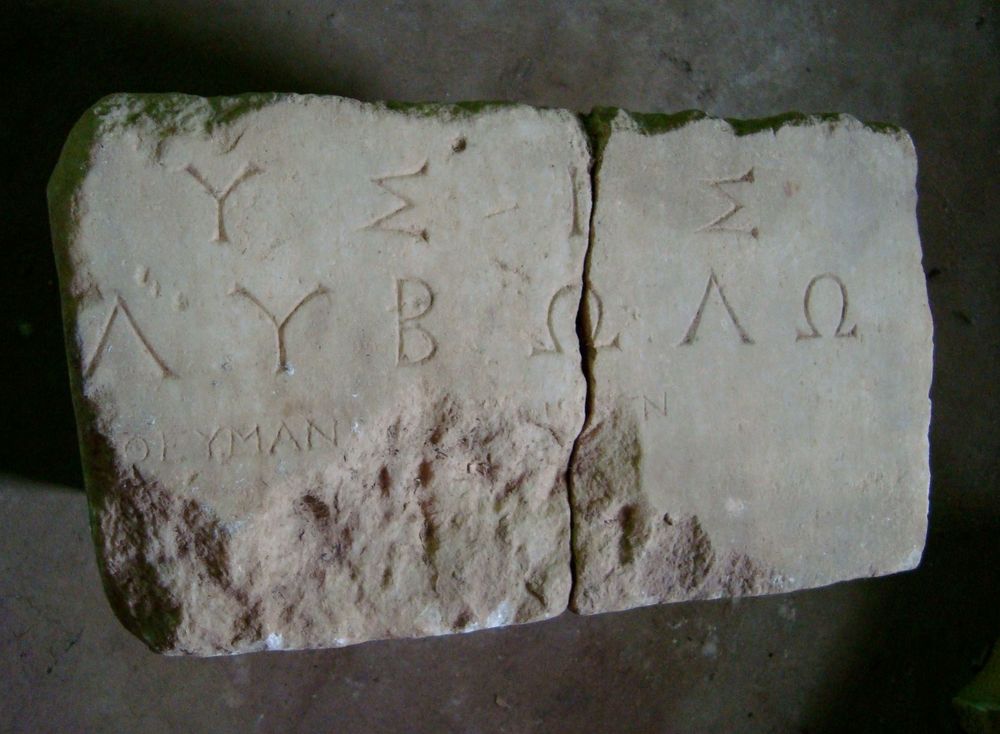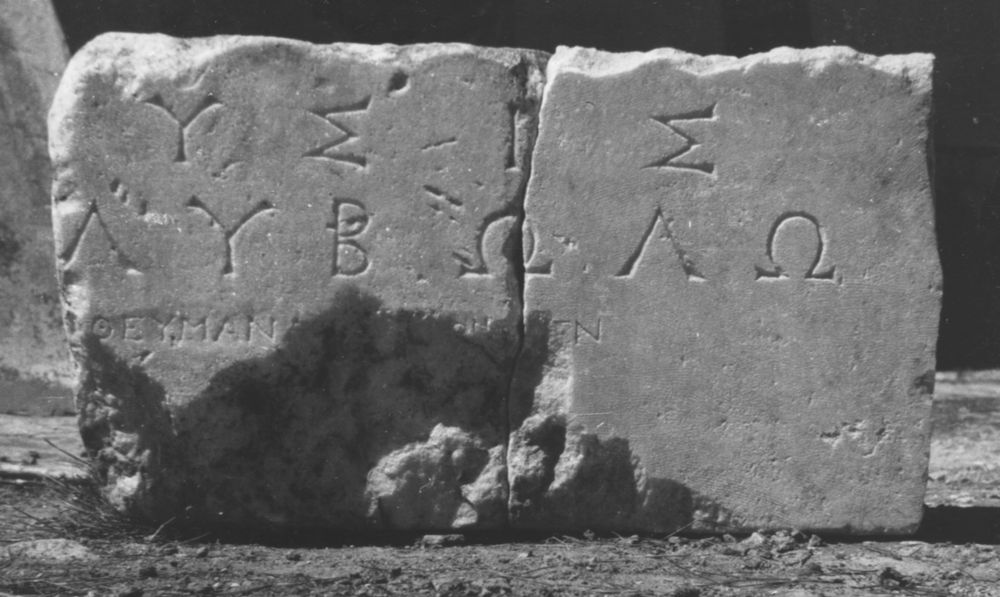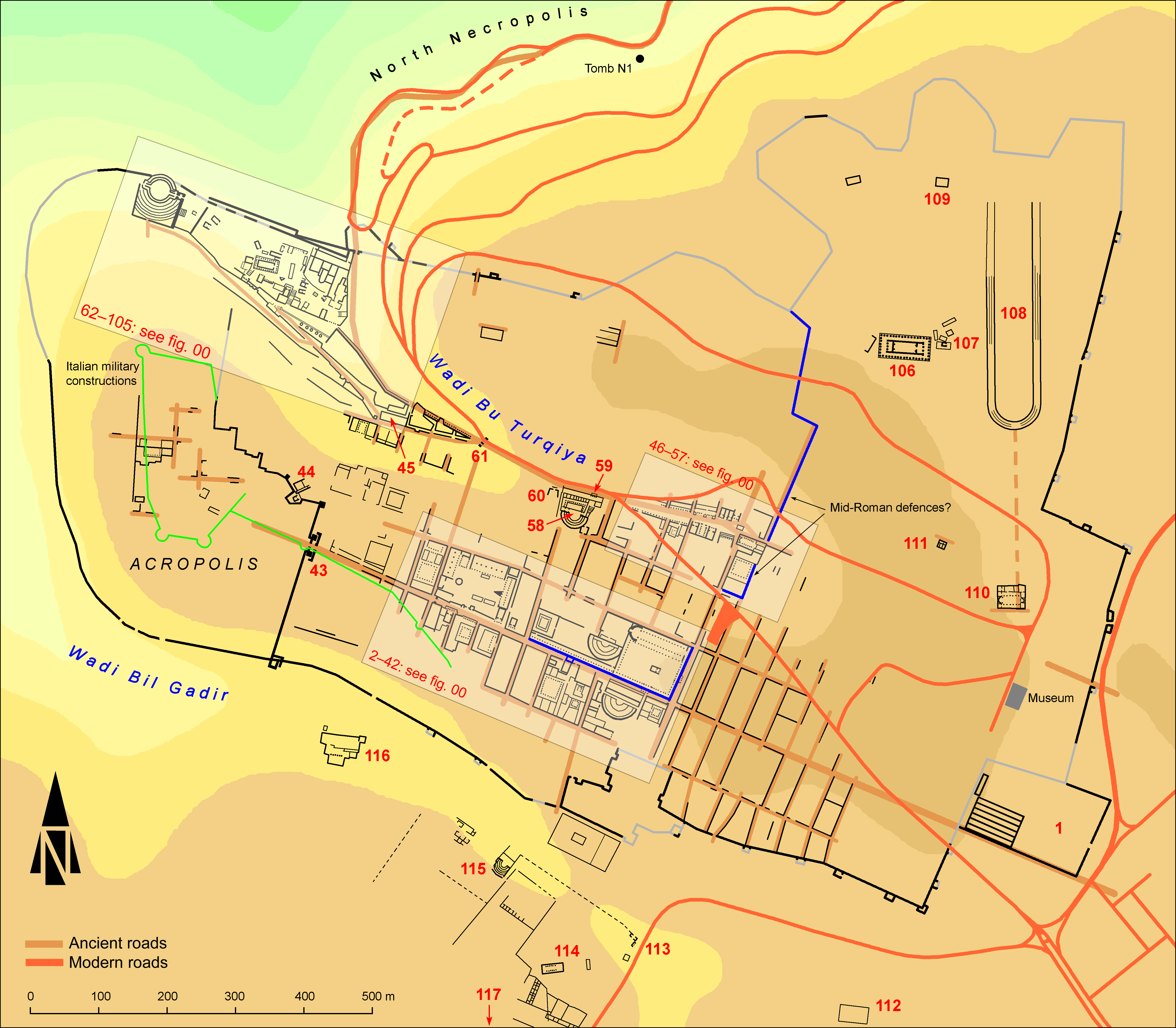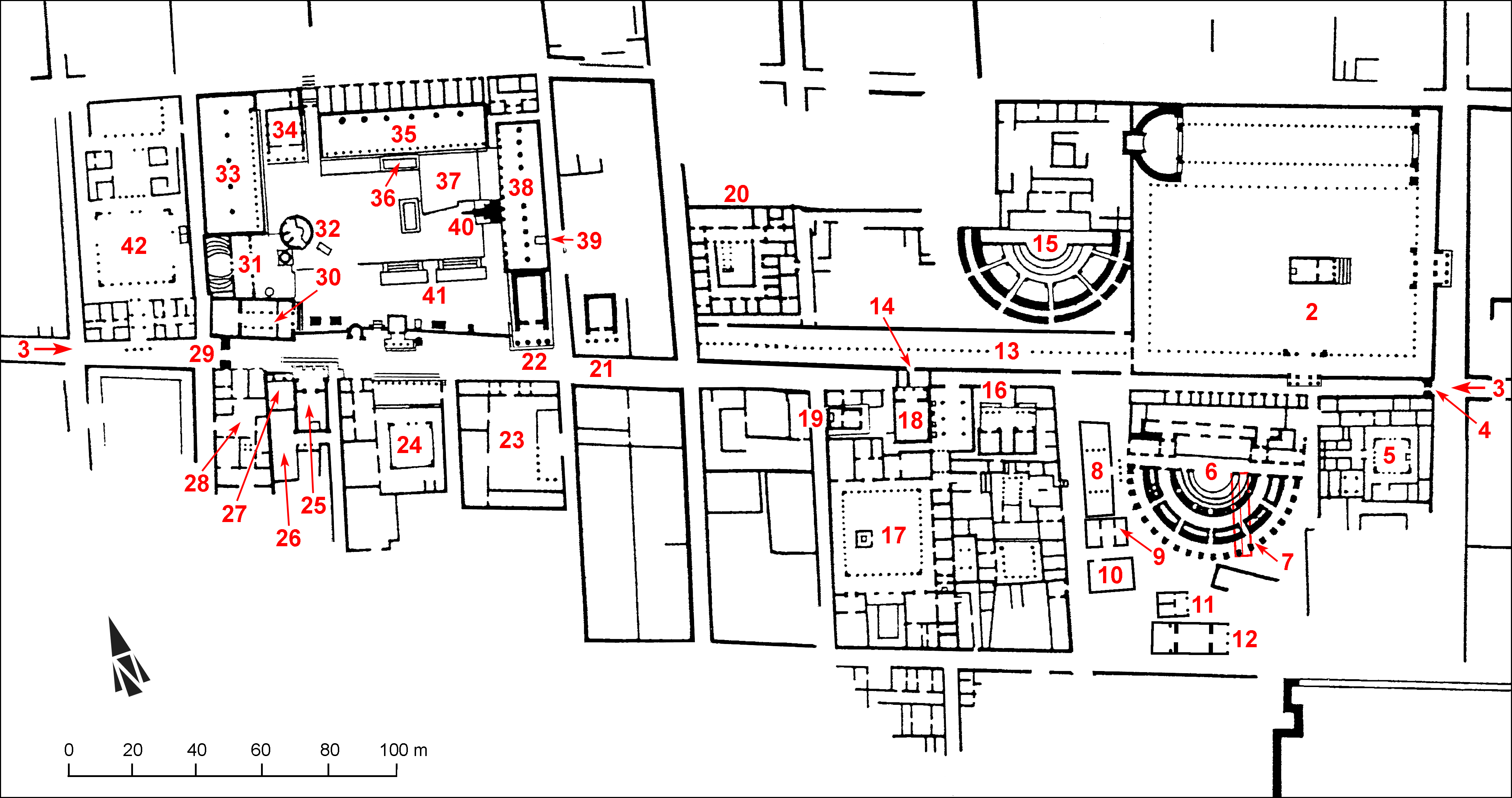EpiDoc XML:
IGCyr1021002
Trismegistos ID:
738531
Source description
Support: Two adjacent fragments of a white marble base with two holes for attachment of a statue on top; recut at left, so that the hole for the right foot of the statue is partly lost; also recut at back on the right with a large notch; chipped off at right of upper edge and more severely below in the middle (fragment a w: 0.28 × h: 0.28 × d: 0.61; fragment b w: 0.242 × h: 0.283 × d: 0.64).
Layout: Inscribed carefully on the front face in two lines and a third one, smaller, below, all of them centred along vertical axis.
Letters: ll. 1-2: 0.035; l. 3: 0.012; slight serifs, slanting sigma, widely open upper part of upsilon, rather widely open omega.
Date: Ca. 250 BC (lettering).
Findspot: Fragment b was found in 1958 at Cyrene ➚: in the agora, reused in the substructures of the fence of the Audience Hall (Praetorium) that in the fourth century AD replaced the Augusteum; no provenance is known for fragment a, which was registered in Oliverio's papers, whence found before 1937.
Last recorded location: Cyrene Museum, inv. number unknown. Studied by C. Dobias-Lalou in 2001 and again in 2010 in Shahat: Cyrene Museum. Studied by E. Rosamilia in 2010 at the same place.
Text constituted from: Transcription from stone (CDL and ER).
Bibliography
Fragment a :Oliverio , II.64, whence SECir, 187, fig. 138; both fragments: Gasperini – Stucchi 1965, p. 316, pl. LVII.3 (= Gasperini – Arnaldi – Marengo 2008, p. 44, fig. 18,3 ), and again Gasperini 1967, pp. 168-169, n. 16, fig. 200 (= Gasperini – Arnaldi – Marengo 2008, p. 82, n. 16, fig. 16), whence SEG, 58.1890; Gasperini – Arnaldi – Marengo 2008, pp. 537 and 542; IGCyr 102100 ➚. Cf. Rosamilia 2014, n. 6, whence SEG, 64.2012.
Text
Apparatus
3: «Θεύμανδ̣»[ρος] Rosamilia 2014: Θεύμανδ̣[ρος] Gasperini – Arnaldi – Marengo 2008; [---] Θευμάνδ̣[ρω] SECir, Gasperini – Stucchi 1965
French translation
Lysis fils de Polybôlos. Oeuvre de Theumandros.
English translation
Lysis son of Polybolos. Theumandros was the artist.
Italian translation
Lysis figlio di Polybolos. Opera di Theumandros.
Commentary
A link with the priest of the lists of subscribers (IGCyr0652002 and IGCyr0652102), also mentioned at IGCyr0200002), suggested by Gasperini, is now irrelevant, as his name is now completely known as Νικόβωλος.
Rosamilia rightly points that the artist's name is cut in a shallow depression, although it is not possible to guess whether a former inscription was erased because of a change of sculptor or because of a mere mistake of the stone-cutter.
CC BY-NC-SA 4.0 Deed Attribution-NonCommercial-ShareAlike 4.0 International License.
All citation, reuse or distribution of this work must contain a link back to DOI: https://doi.org/10.60760/unibo/igcyrgvcyr2 and the filename (IGCyr000000 or GVCyr000), as well as the year of consultation.



